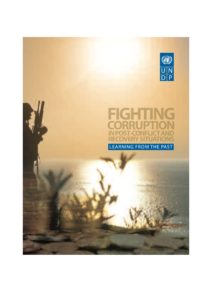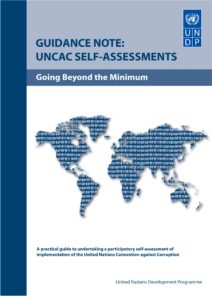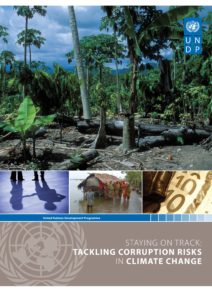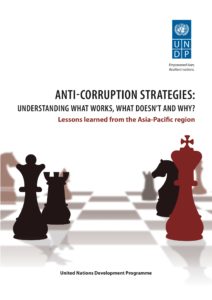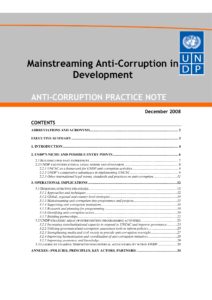Fighting Corruption in Post-Conflict & Recovery Situations
June 2010
Based on empirical research in 5 countries (Afghanistan, Democratic Republic of Congo (DRC), Iraq, Sierra Leone and Timor-Leste), the “Fighting Corruption in Post Conflict and Recovery Situations: Learning from the Past” report explores the dynamics between corruption and post-conflict situations and looks at the effectiveness of anti-corruption programming in that context. The report is UNDP’s flagship initiative to bring specific attention to reviewing, understanding and developing anti-corruption approaches in post-conflict settings and has generated a great deal of interest.
This publication aims to contribute to achieving the SDGs from an anti-corruption perspective.
#corruption
#anticorruption

